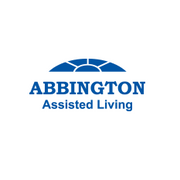
For many older adults, senior care includes treatment for and management of diabetes. Diabetes is a serious medical condition, affecting about 15.9 million elder Americans above age 65. The disease develops when a person's blood glucose or blood sugar level is too high. Failing to treat the condition can result in serious medical complications in seniors, like kidney failure and heart disease. However, many cases of diabetes are preventable and manageable with the proper senior care. Use the guide below to learn more about diabetes and how it affects older adults.
What Are the Types of Diabetes?
Diabetes has two types. Type 1 diabetes is prevalent in children or young adults who cannot produce enough insulin from their pancreas. Some seniors can develop the condition later in life. However, older adults with Type 1 diabetes have had the illness since childhood.
The most common diabetes in older adults is Type 2, which occurs when the body doesn't make enough insulin or use it well. People with this condition have difficulty processing glucose from food to fuel the body. The pancreas may produce insulin, but the body develops a resistance to it, causing blood sugar levels to spike.
What Are the Symptoms and Risk Factors of Diabetes in Seniors?

When older adults have Type 2 diabetes, they may exhibit several symptoms. They may have increased hunger, thirst, and urination. Other common symptoms include blurred vision, weight loss, fatigue, and tingling in the hands and feet. Some adults may be asymptomatic for years with the condition, so regular diabetes screening is an essential aspect of senior care, whether the person lives in a retirement home or an independent living community.
People who are overweight without an active lifestyle are more likely to develop Type 2 diabetes. The condition is also heredity. Adults over 45 years old are also predisposed to diabetes.
How Can You Manage Type 2 Diabetes?
If a senior has diabetes, they must manage their blood glucose levels. The best way to do so is through diet and exercise. Losing weight and reducing sugar can significantly reduce their risk of complications from Type 2 diabetes. However, some individuals require insulin injections or pills to maintain their sugar levels, in addition to lifestyle changes. Sometimes, physicians will prescribe other medications to improve a diabetic's health, such as prescriptions for hypertension or high cholesterol.
Abbington Assisted Living is proud to provide senior care throughout Columbus, Pickerington, Powell, Chillicothe, and Coshocton, OH. Abbington senior living communities are one-story buildings that are designed with comfort and security in mind, offering comprehensive nursing care services in a compassionate, comfortable, and cost-effective manner. Please visit our website or call us directly at (614) 451-4575 in Columbus, (614) 577-0822 in Pickerington, (614) 789-9868 in Powell, (740) 773-4630 in Chillicothe, or (740) 623-4600 in Coshocton.
About the Business
(2 reviews)
Have a question? Ask the experts!
Send your question

